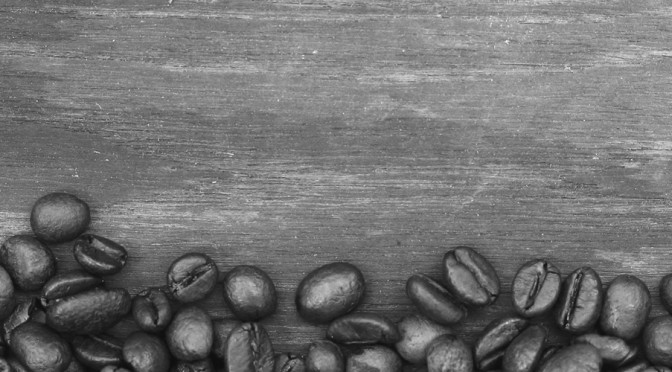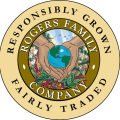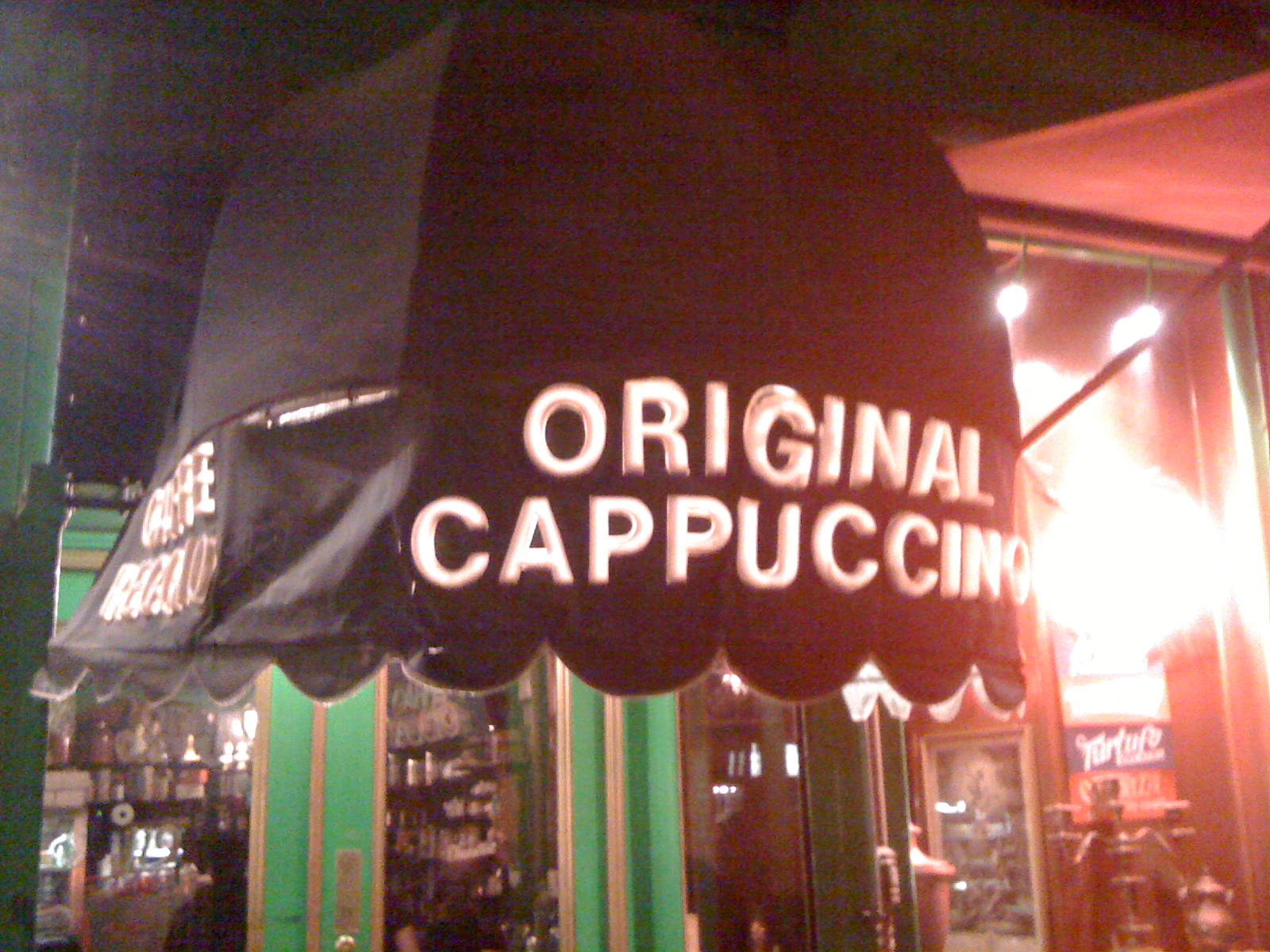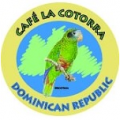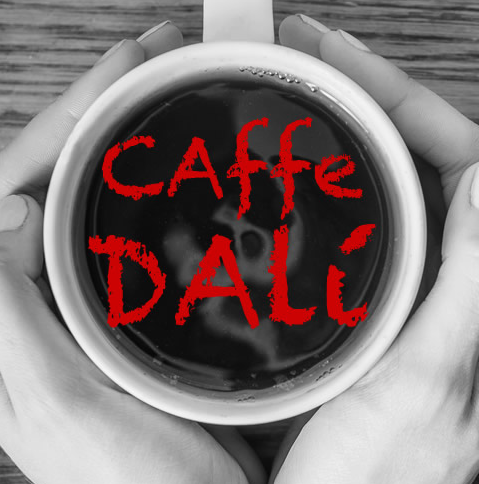 Sometimes a coffee shop is just a coffee shop; they do one thing: make coffee and sell it. This isn’t a bad venture by any means – some people see coffee as another market with a demand, and they see a coffee shop as a way to make money and provide the supply. This is business, and often it works great. But sometimes a coffee company is more than a coffee company. Sometimes these coffee shops and roasters choose to interact with their community and with the world in a meaningful way that has the potential to make a difference in the lives of people that sit down to enjoy a cup of coffee.
Sometimes a coffee shop is just a coffee shop; they do one thing: make coffee and sell it. This isn’t a bad venture by any means – some people see coffee as another market with a demand, and they see a coffee shop as a way to make money and provide the supply. This is business, and often it works great. But sometimes a coffee company is more than a coffee company. Sometimes these coffee shops and roasters choose to interact with their community and with the world in a meaningful way that has the potential to make a difference in the lives of people that sit down to enjoy a cup of coffee.
When I typically write about coffee, I like to stress the importance of local coffee shops that are making a tangible difference in their city and community. The best coffee shops I’ve visited host events, sponsor local artists and musicians, and act as a destination location for those seeking a great conversation and those looking to get some work done alike. Cafes have been a part of the social bedrock from ancient times until today, and there’s nothing I appreciate more than a small business that steps up and takes this mantle on with vigor.
Caffe Dalí takes this notion of a coffee company that is more than a coffee company to the next level. And while they haven’t poured their heart into a local community in the form of a brick-and-mortar coffee shop, they are doing much, much more with the resources they have amassed.
Caffe Dalí sent me a number of pamphlets with phrases like “Can a Cup of Coffee Change a Life?” and “So good…it’s surreal!” While skeptical of the actual claims and message, I was intrigued. I navigated over to their website and found a host of material and links that made everything make more sense. Let’s start with their first big promise.
Caffe Dalí will directly impact the lives of the most innocent and the most vulnerable: Kids around the world who are orphans, infected with AIDS, and those young girls who have been sold into horrific sex trafficking industry. A minimum of 20% of all Caffe Dali’s profit will go directly toward rescuing these kids.
Along with this amazing pledge, Caffe Dalí uses phrases like “innovative marketing strategy” and “innovative business plan” to describe how they are getting their message to the world at large. Unfortunately, with the exception of the above quoted promise, Caffe Dalí doesn’t offer specifics as to how they plan to bring their good cause to the public at large. It is possible, however, to glean some specifics from a separate page on their website titled Opportunity.
Caffe Dalí has a host of opportunities for people and businesses in nearly every sector of life. Their overarching categories include restaurants, educational organizations, non-profits, and religious organizations (including churches, synagogues, and mosques). Essentially, if any of the above organizational structures want an alternative way of making money, Caffe Dalí is eager to step in and fill that gap by providing coffee, and help you set up a business plan to boot.
Their website appears a mile wide and an inch deep in some respects, but I think it’s due to their understanding that every business and every person has a unique situation. Nearly every page has a form to fill out in order to get in touch with them, and this availability makes me hopeful that they are focusing on less talk and more do.
So, what about the actual coffee? Is it any good?
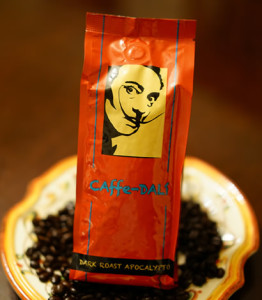 Caffe Dalí sent me their “Apocalypto Blend” which is a mix of beans originating from Colombia, Mexico, Guatemala, El Salvador, and Brazil. It’s a dark roast.
Caffe Dalí sent me their “Apocalypto Blend” which is a mix of beans originating from Colombia, Mexico, Guatemala, El Salvador, and Brazil. It’s a dark roast.
I brewed the Apocalypto Blend in my Hario v60, using my standard coffee:water ratio of 28:415grams. While brewing I noted that it had a nice bloom – a sign of freshness. My brew time was about 3 minutes when all was said and done.
Now I must put a disclaimer here: I’m not really a fan of dark roasts. It’s not that I think there is anything intrinsically wrong with them, I just prefer the flavors that tend to shine in lighter roasts. Knowing my predisposed feelings towards dark roasts, I went into tasting this coffee with as much of a blank slate in my mind as I could muster. I’ve had some pretty nasty dark roasted coffee before – but I’ve also had some pretty great ones. Clearing my head as I poured my first cup, I was ready for whatever Caffe Dalí had for me.
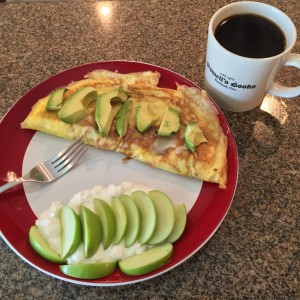 And you know what? Their Apocalypto Blend was pretty great. It had a somewhat nutty initial taste, with a light bitterness all the way through the taste. But this bitterness wasn’t the sharp, dirty bitterness that I find all too often in Starbucks brews. No, this was a back-of-the-tongue bitterness that had just a hint of the earthy tones that make dark roasts unique. I found this bitterness was much less noticeable when I paired the coffee with spicy or oily foods (like, say, a pepper jack cheese omelette and avocado).
And you know what? Their Apocalypto Blend was pretty great. It had a somewhat nutty initial taste, with a light bitterness all the way through the taste. But this bitterness wasn’t the sharp, dirty bitterness that I find all too often in Starbucks brews. No, this was a back-of-the-tongue bitterness that had just a hint of the earthy tones that make dark roasts unique. I found this bitterness was much less noticeable when I paired the coffee with spicy or oily foods (like, say, a pepper jack cheese omelette and avocado).
The coffee is much more pleasant than a Starbucks dark roast, or really any 2nd Wave coffee. That being said, I think this coffee suffered from what so many blends do – it tries to do too much with too many types of coffee from various regions. We could debate the merits of single-origin vs. blended coffees all day, but that’s not what I’m talking about. I’m talking about the far side of blends – like when you mix too many paint colors and end up with a gross brown or a completely undesired gray. This coffee isn’t gross, but neither is it very different from other upper-level dark roasts. This is only a small ding, however, because these upper-level dark roasts are some of the best of that genre.
In all, I applaud Caffe Dalí for sending me a dark roast that I didn’t hate – and more than that – one that I actually found myself enjoying.
The one thing missing from Caffe Dalí big promises and hopeful verbiage is a page of success stories. They don’t list businesses or churches that have used Caffe Dalí to increase their profits, nor do they have any pictures of real people who are selling their product. Caffe Dalí has only been around since 2013, so it’s likely that they are still waiting on those success stories to roll in.
Based on what I’ve tasted, what I’ve read, and the information I’ve been given, I hope Caffe Dalí is successful. Lord knows, our world could use more coffee shops that are more than coffee shops.
The Coffee Guy
